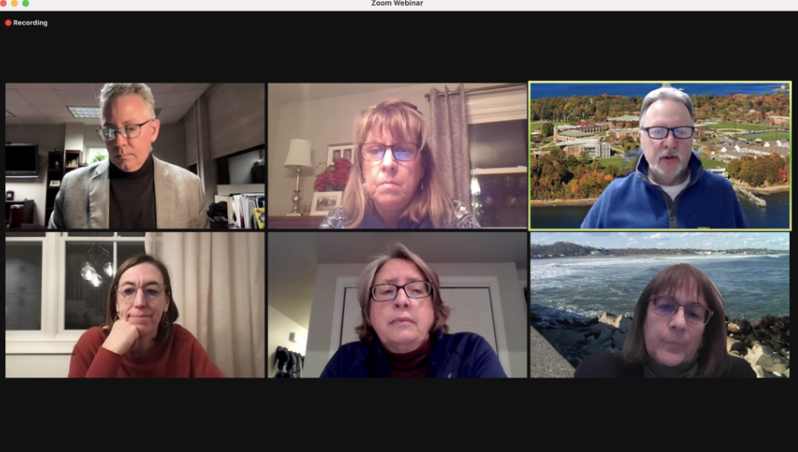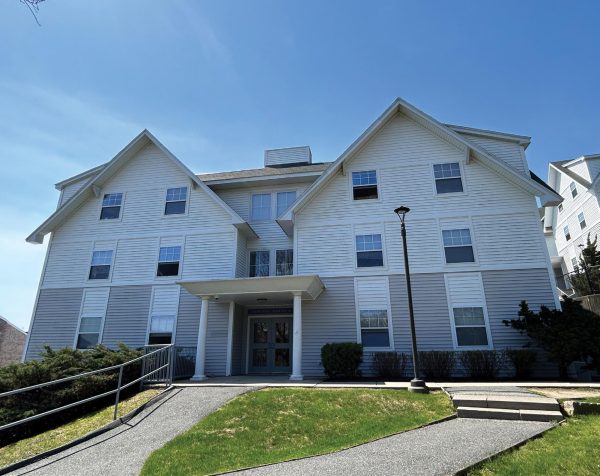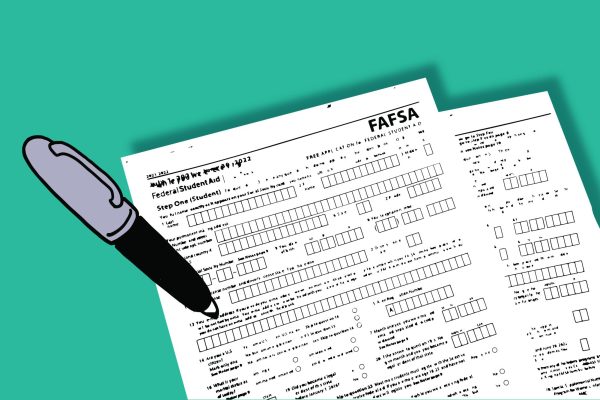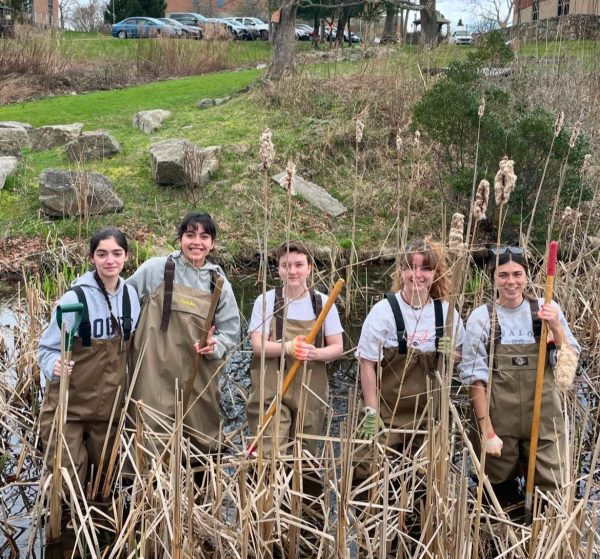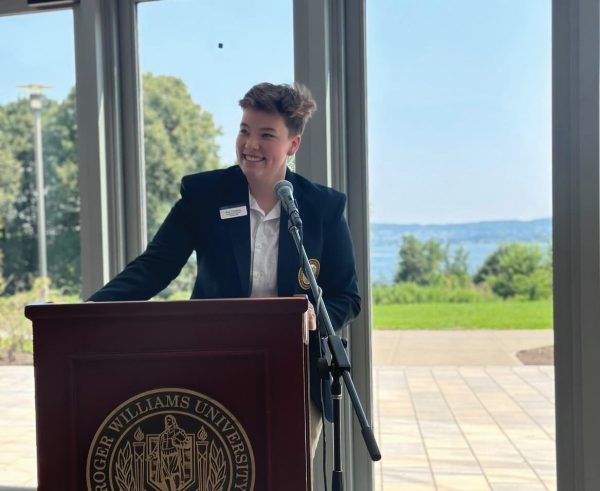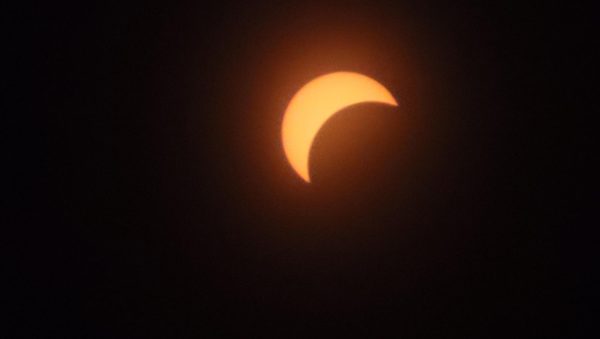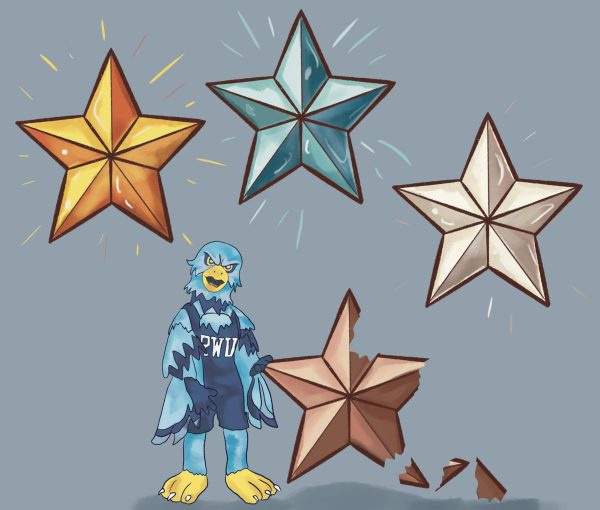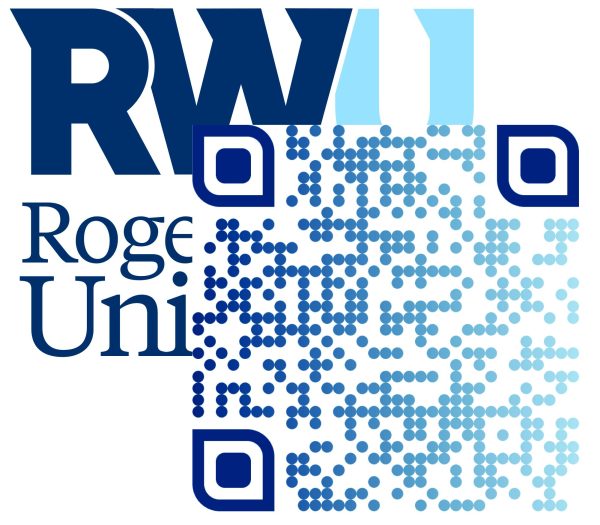New COVID-19 guidelines discussed at RWU Spring 2022 Reopening Session
Vice President for Student Life John King speaks at the RWU Spring 2022 Reopening Session to RWU students via Zoom. Chief of Staff Brian Williams (top left), Director of Health Services Anne Mitchell (top middle), Provost and Senior Vice President for Academic Affairs Margaret Everett (bottom left), Athletic Director Kiki Jacobs (bottom middle) and Infection and Prevention Consultant Marlene Wolpert (bottom right) also spoke at the Zoom session.
In light of the new COVID-19 variants emerging in recent months, Roger Williams University (RWU) will have new COVID safety guidelines in response. The new guidelines were discussed at the RWU Spring 2022 Reopening Session for students held on Tuesday, Jan. 11 via Zoom.
Vice President of Student Life John King, Chief of Staff Brian Williams, Director of Health Services Anne Mitchell, Provost and Senior Vice President for Academic Affairs Margaret Everett, Athletic Director Kiki Jacobs and Infection and Prevention Consultant Marlene Wolpert spoke at the session. Students had the option to use the Q&A feature on Zoom to ask any questions.
Wolpert said the Omicron variant has a shorter incubation period which is about three days and is about eight to ten times more contagious than the original COVID-19 virus. “Most people say that having Omicron infection is like having a bad cold,” said Wolpert. For that reason Wolpert said, “If you have a runny nose, congestion, if you’re really tired, have a headache or a fever you need to get tested because you cannot assume it’s your allergies or a simple cold.”
At the end of last week the Rhode Island Department of Health estimated 45% of cases in Rhode Island were from Omicron and as of last Friday it is estimated that 96% of cases in New England are in fact from Omicron according to Wolpert.
One of the major precautions being taken for the spring semester is having the first week of classes take place on Zoom with the goal of in-person classes resuming on Jan. 31.
Some safety guidelines will stay the same at the start of the spring semester. Vaccinated individuals will test once a week and individuals with vaccination exemptions will be required to test twice a week. The university will continue to utilize both rapid antigen testing as well as PCR testing.
A new feature to the Beacon testing system will be students can pick a time slot that will be a recurring appointment throughout the semester.
Mitchell said students who tested positive over break should send their positive test results to Health Services and students who isolated at least eight days and do not have symptoms after, can return to campus and will not have to do clearance testing.
The isolation period for students that test positive during the semester will be eight days followed by two days of complete masking in the presence of others, said King.
Masks will be required in indoor facilities and classrooms, but inside residence halls vaccinated students will not be required to wear a mask unless the Covid contact tracing team or Health Services tells a student to wear a mask for a specific period of time according to King.
Booster shots are strongly encouraged and required for employees and students without vaccination exemptions. Employees are required to get their booster by Feb. 1 and students are required to do so by March 1.
Wolpert said for someone who got their initial COVID vaccinations, their protection from Omicron would be 30% whereas with a booster their protection would rise to 75%.
An on-campus booster clinic will be held Jan. 30 from noon to 2 p.m. in the Recreation Center Field House and a nearby off-campus clinic at the Annawamscutt Drive Community Center in Bristol operates on Tuesdays and Thursdays through the first week of February.
King said the goal is to have three tests for vaccinated students and four tests for unvaccinated students before returning to classes Jan. 31. This includes the negative PCR test taken 72 hours prior to arrival to campus or the rapid antigen test taken 48 hours prior to arrival, the rapid antigen test upon arrival, and the test(s) from the week of Jan 24.
Upon arrival to campus students will be given three KN95 masks which are recommended but not required for students to wear in indoor facilities. King said the university is, “pleading with people that given the research which indicates KN95 masks are more effective than cloth masks.”
“Please consider getting your own supply [of KN95s], they are very reasonably priced,” said King.
King said to students, “We will get over this bump and find the valley and get back to our normalcy, just as we have in the last three semesters.”
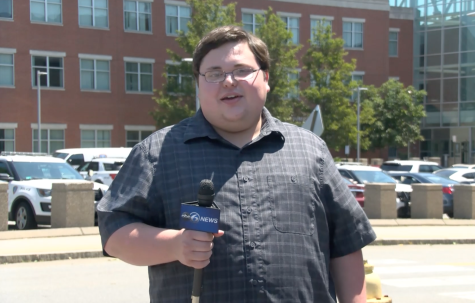
Jimmy Sadowski is a journalist with experience in print, multimedia, and broadcast journalism. Sadowski’s specialty is news, but can also provide...

